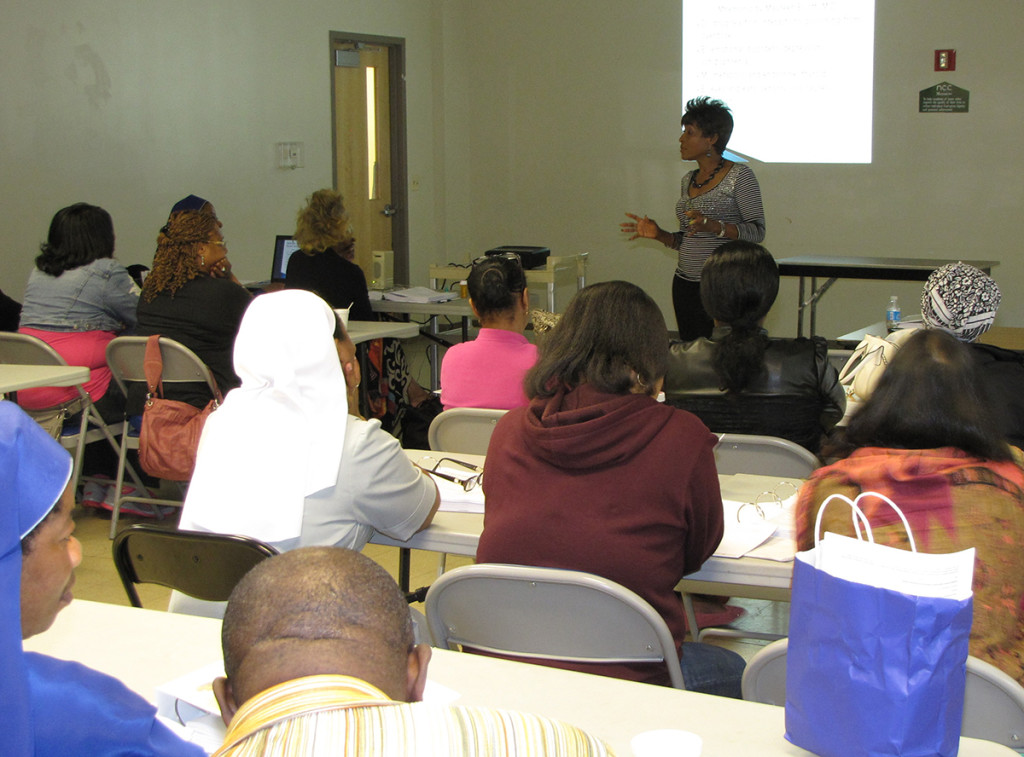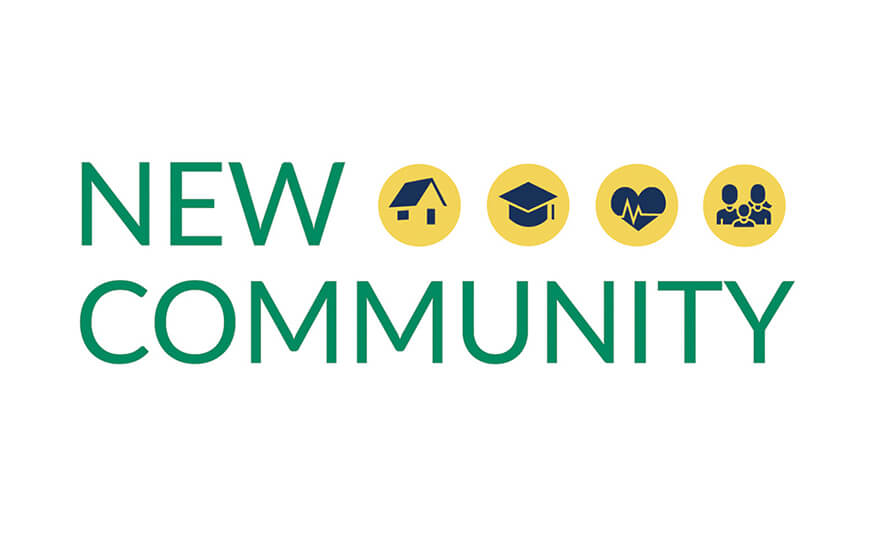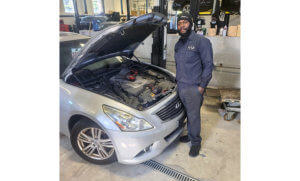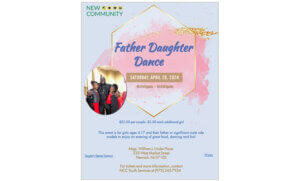
Seniors who are suffering from dementia can be mistaken as being combative, confused or highly particular about their daily routine.
But in reality, they are dealing with a degenerative brain disease.
Caring for seniors has long been at the heart of New Community Corporation’s mission and as a result, NCC staff have recently completed training in how to identify signs of dementia and also address Alzheimer’s disease, which is the most common type of dementia.
Through a recent series of seminars led by NCC Director of Nursing Veronica Onwunaka, New Community caregivers learned key facts about dementia and received practical tips on interacting with diagnosed residents. The goal is for all caregivers to eventually become Certified Dementia Practitioners.
During a recent session held in a conference room at the Family Service Bureau, Onwunaka told a room filled with NCC medical staff why recognizing the needs of dementia patients is so crucial.
“If we’re not paying attention, we’re making matters worse for them,” Onwunaka said. “It’s important we realize that these little things we do are life and death,” she added.
During the first part of the day-long seminar, Onwunaka outlined the three stages of Alzheimer’s: (1) mild cognitive impairment, (2) confusion, anxiety and fear, and (3) severe impairment, individual cannot live independently.
For Sheila Coleman, a Licensed Practical Nurse who has worked at Extended Care for 18 years, the seminar highlighted the importance for medical staff to thoroughly document and communicate between shifts and floors at the 180-bed nursing facility.
Those seemingly mundane practices can help Extended Care staff identify which residents may be suffering from dementia. “We all have to be on the same page,” she said. If a caregiver notices something unusual, Onwunaka said, “That could become a plan of care for that patient.”
Onwunaka also emphasized the importance of a caregiver’s bedside manner. For a resident who is resistant to taking baths, Onwunaka modeled a conversation where she first checked in with the resident and asked what time she would like to take her bath. Later, when she returned at the agreed upon time, Onwunaka verbally walked through the process of gathering her clothes and bath items step-by-step.
“I am explaining to her. I am getting her involved in the decision-making process,” said Onwunaka, a Certified Dementia Practitioner who also leads NCC’s monthly support group for dementia and Alzheimer’s caregivers.
The seminars also dovetail with academic research initiatives spearheaded by NCC Extended Care Facility staff that examine ways to slow down or reverse cognitive degeneration. Sister Monique Ejim, a doctoral candidate at Rutgers-Newark who also works at Extended Care, is leading the research.
Madge Wilson, NCC Outreach Coordinator and board member, said she decided to participate in the dementia seminar to learn more about the condition that her now 87-year-old aunt was diagnosed with in 2012.
“I’ve heard the word dementia but years ago, they called it senility,” said Wilson, whose aunt, Eunice Harris, currently resides at Extended Care.
At age 81, Wilson keeps a very active schedule because she said she believes it helps to keep her mind sharp. “It was interesting to me to see what to expect at my age,” Wilson added.



